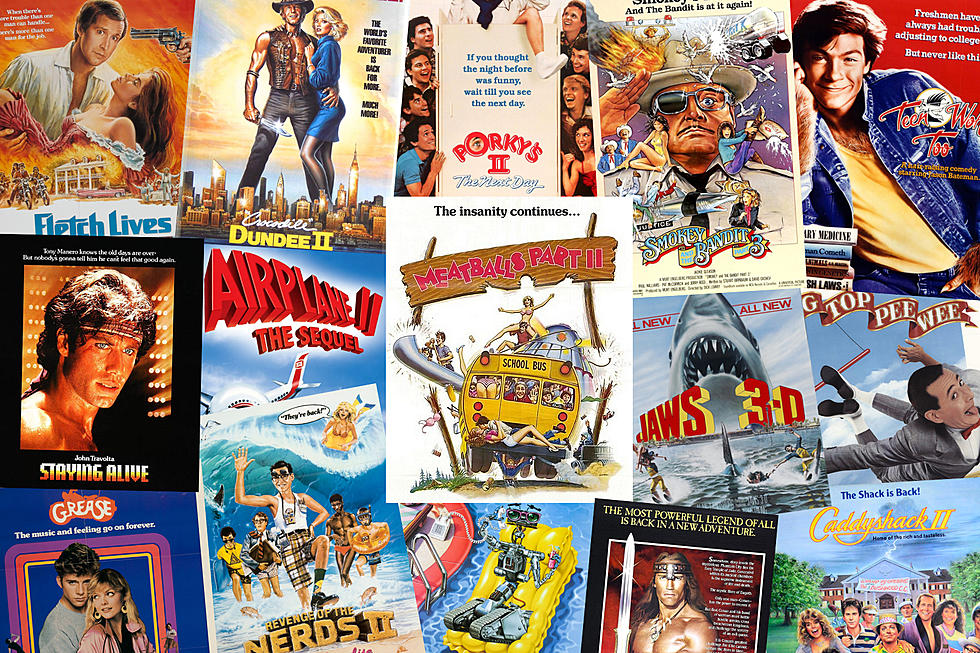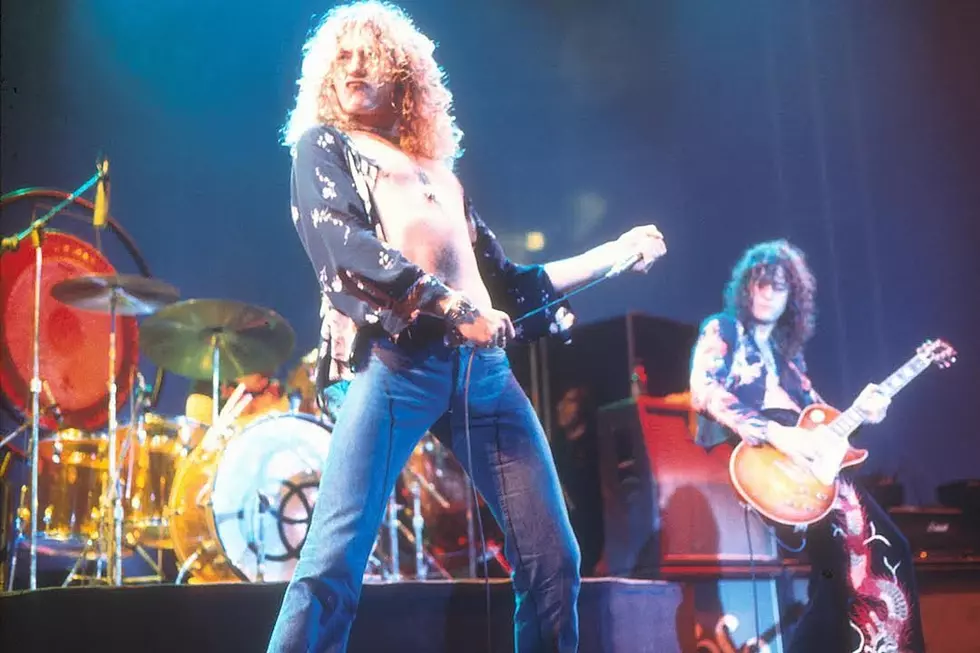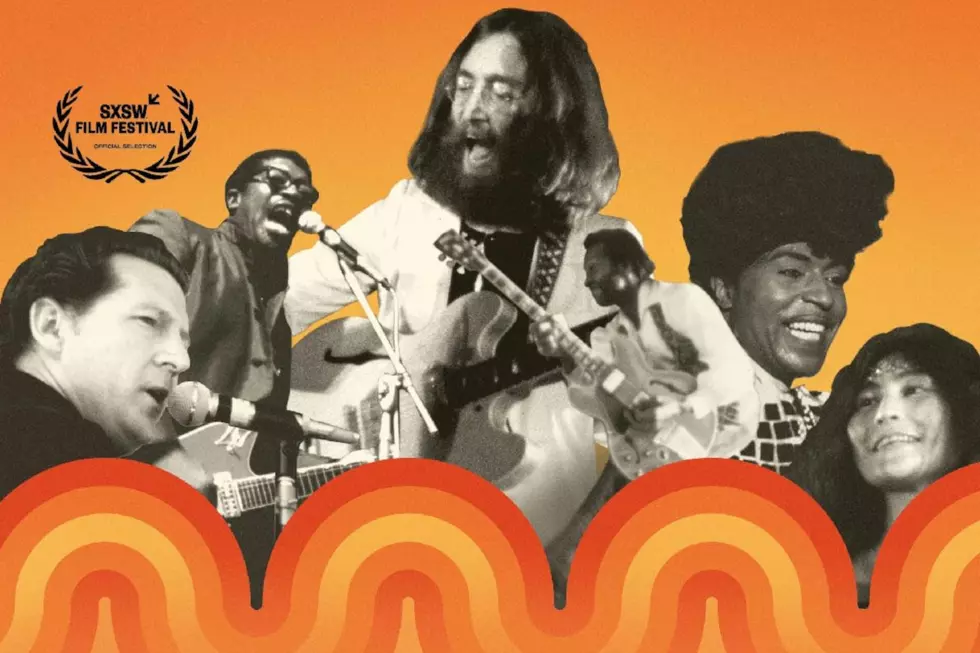
40 Years Ago: ‘The Concorde: Airport ’79’ Ends Series on Unintentionally Hilarious Note
The Concorde: Airport '79 is both the final and most ludicrous entry in the Airport disaster-movie series, but it might just be the most compulsively watchable. Not because it's any good, but for just the opposite reason.
Almost nothing makes sense, not the casting, not the threats, not the participants' reactions. It's weirdly episodic, with unimaginable dangers – first a runway obstacle, then an experimental attack drone, then a rogue jet fighter pilot and then on-board sabotage – befalling passengers and crew who then, for reasons unknown, keep boarding the same plane for their connecting flights.
Part of the allure, as the film debuted on Aug. 3, 1979, was the technological wonder of the plane itself. "We believe," writer and producer Jennings Lang told the Washington Post in 1979, "that Concorde is a magical star that people will go to see in a good motion picture."
Introduced just a few years earlier, this new turbo-powered supersonic jet was sold to potential costumers based on luxury, and velocity: It flew at twice the speed of sound, meaning an eight-hour flight from New York City to Paris was suddenly cut by more than half.
Air France only agreed to loan the plane out under strict conditions, and that included certain changes to the plot. "It took Jennings Lang a long time to get permission from Air France and the plane's makers, Aerospatiale, to use Concorde," actor Alain Delon, who played pilot Paul Metrand, told the Post. "You must remember it's not just another aircraft to us; it's a star."
Still, who knew the co-pilot character played by the late actor George Kennedy – a veteran of every Airport film, dating back to the 1970 original – would have the courage to deal with a no-brake emergency landing, an open cargo door that ripped the bottom of the Concorde off, reaching out mid-flight to fire a flare gun in order to disorient a heat-seeking missile, or putting the plane down in an Alpine snow bank? In fact, who knew he could operate a plane, at all?
Lang seems to have forgotten that Kennedy's Joe Patroni began as a hero mechanic in this series. In the two other sequels, he also played an airline vice president and a private contractor hired out by a billionaire. But when Metrand asks Patroni how long he's been in the air, Kennedy's Airport '79-era character says: "I stopped counting after 30 years. I've flown just about every aircraft there is through three wars and 40 pounds."
He'll need every bit of that moxie to battle against weapons manufacturer Kevin Harrison (Robert Wagner), who's determined to take out passenger Maggie Whelan. Played by Susan Blakely, the journalist boarded this Federation World Airlines flight bearing documents that implicated Harrison in illegal arms deals.
Again and again, he attempts to derail her. Still, in a helplessly transfixing tableau, the Concorde just keeps flying, from Washington to Paris then – even after all that's happened – on to Moscow. Clearly, Wagner's bad-shot character needs to stick with constructing weapons, rather than actually using them.
Watch the Trailer for 'The Concorde: Airport '79'
The airliner is elsewhere populated by a group that's meant to replicate the entertainingly varied casts of earlier Airport entries, but (like the plane itself at one point) has simply run out of gas. Certified screen legends Helen Hayes and Olivia de Havilland appeared in the earlier films. The last Airport installment features Charo (she plays an impressively tone-deaf character named Margarita who tries to smuggle in a Chihuahua seeing-eye dog) and soft-porn actress Sylvia Kristel (a flight attendant with her eye on Delon's Capt. Metrand).
Even so, there's something so campy, so over the top, about them that The Concorde: Airport '79 ends up working on a comedic level.
Delon, a slumming French actor, seemed to see through the utter ridiculousness that surrounded him as he made one final attempt to crossover in Hollywood. "Mr. Delon is, of course, a very experienced actor," the late Kristel told the New York Times in 1979. "He made it very clear to me that I had a lot to learn. By the time the filming was over, I was almost a nervous wreck."
No few laughs, and a similar amount of cringes, derive from moments that are blithely inappropriate. At one point, a cooing Kristel compliments the flight crew by saying, "You pilots are such men." Kennedy's co-pilot replies: "They don't call it the cockpit for nothing, sweetheart." Air France reportedly nixed any shenanigans while on duty, however, so Kennedy got his own – gulp – layover love scene.
There's a cool callback, as Cicely Tyson boards carrying a donor heart for a seven-year-old son awaiting a transplant. Linda Blair, of course, needed a kidney in Airport 1975. And you get to see some crazy things happen to semi-famous people: Martha Raye is caught in the ladies room when the Concorde executes a gutsy barrel roll in order to avoid Kevin Harrison's guided missile. The late Eddie Albert, whose character serves as president of Federation World Airlines, is nearly lost through a hole in floor of the airliner.
Of course, as per usual, everything works out in the end. Some have lost luggage, but all are simply glad to be alive. Well, except Wagner's character: The aircraft finally, mercifully, explodes, but only after everyone has de-planed. He sees Whelan on a live news broadcast from the event, and proceeds to shoot himself.
Then – in a final moment of chuckle-inducing absurdity – the movie ends with a lingering stock shot of the Concorde soaring elegantly into the clouds. Its presence remains a mystery, other than as a promise for yet another sequel. Instead, The Concorde: Airport '79 did what Wagner's character could not: Bring down the plane. The film arrived to bruising reviews, opening the door for a series of '80s-era spoofs. Worse were the paltry box-office returns, which made this the first in the series to lose money.
Wagner's career rebounded quickly, as he began a 1979-84 run with Stefanie Powers on ABC's Hart to Hart. "I came out unscathed," Wagner said in Heart to Heart with Robert Wagner. "If you can walk away from something like that without getting your head blown off, you should consider yourself fortunate."
Unfortunately, a wider tragedy followed decades later. The entire Concorde fleet was retired in 2003, three years after an Air France flight aboard the same plane from this film crashed in a Paris suburb, killing everyone onboard and several people on the ground.
The Top Movies from Summer 1979
25 Interesting Rock Movie Facts
More From Ultimate Classic Rock









